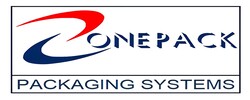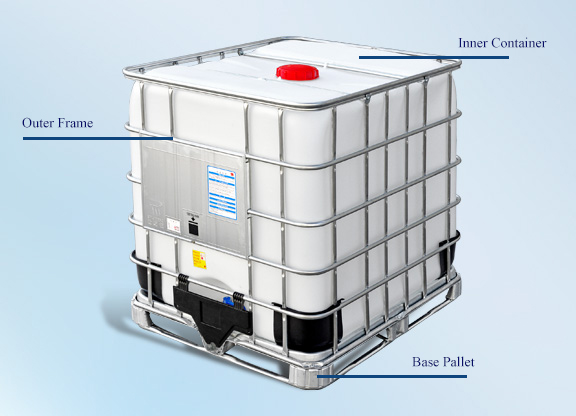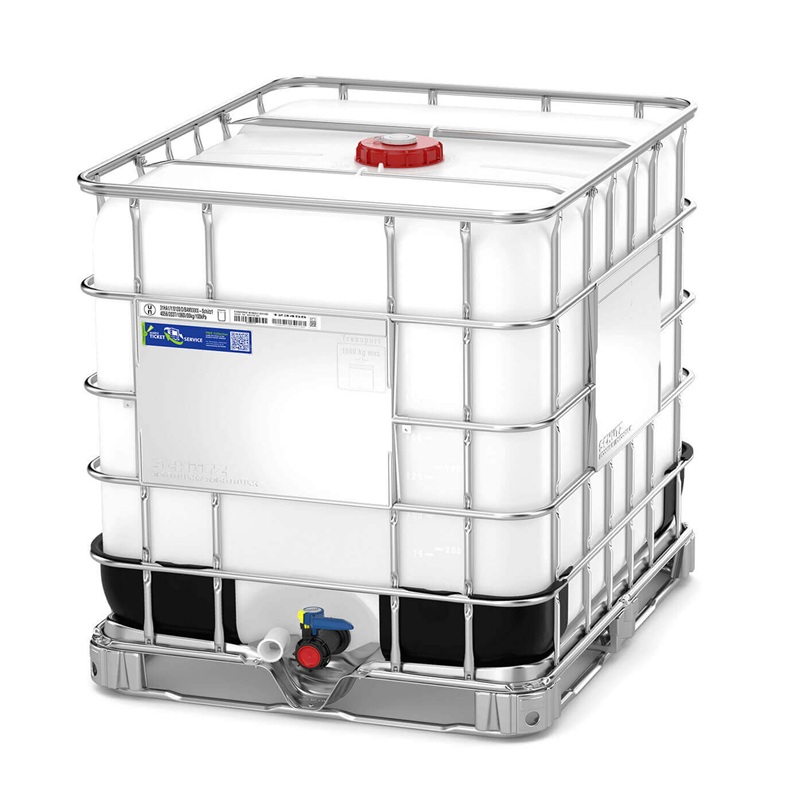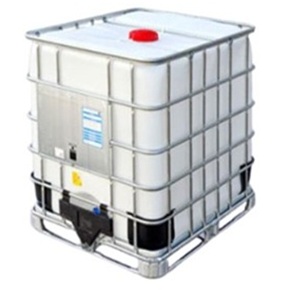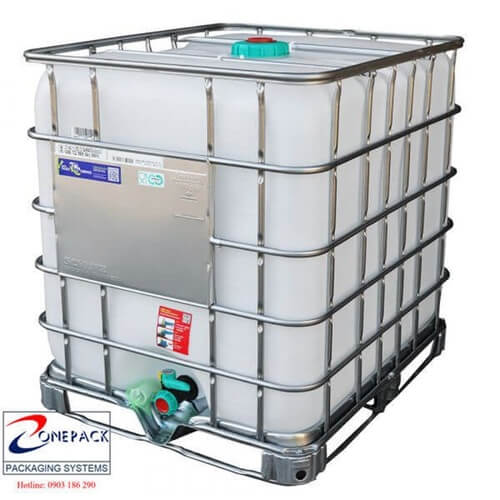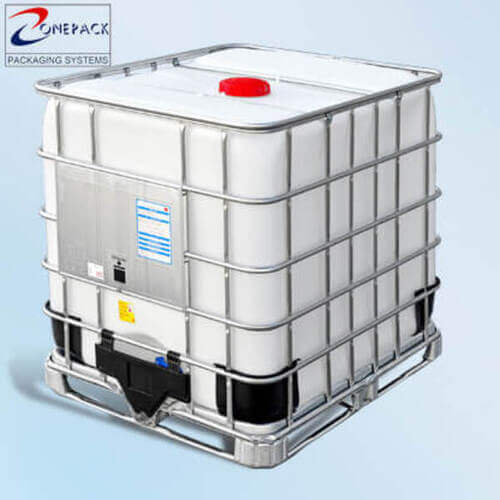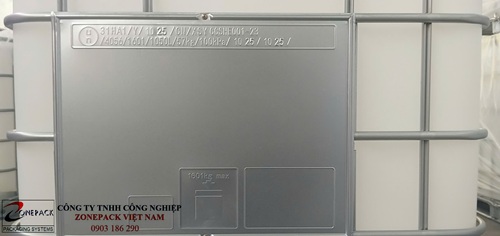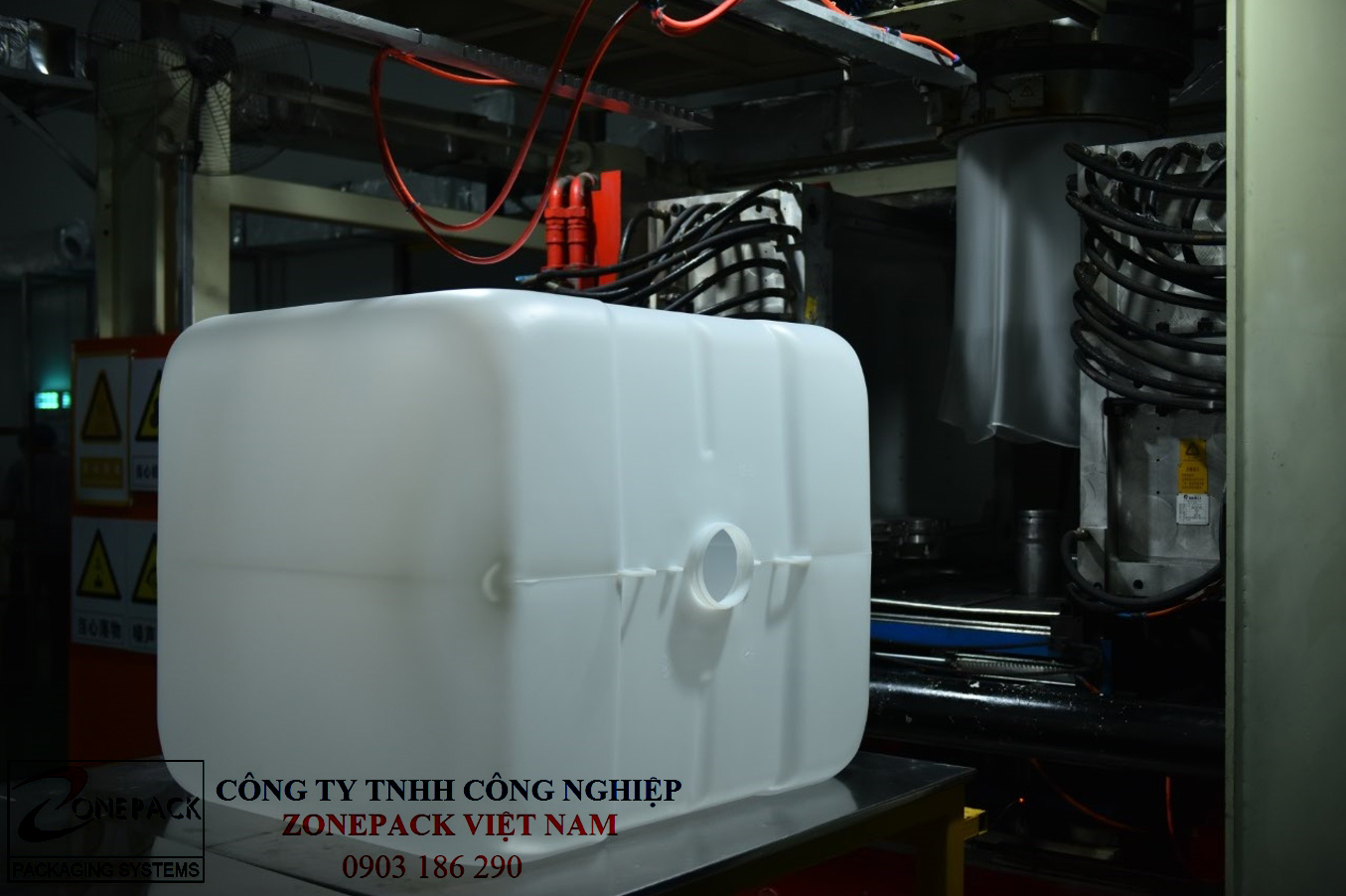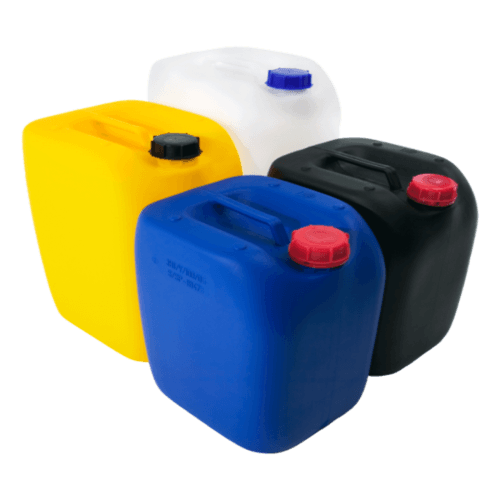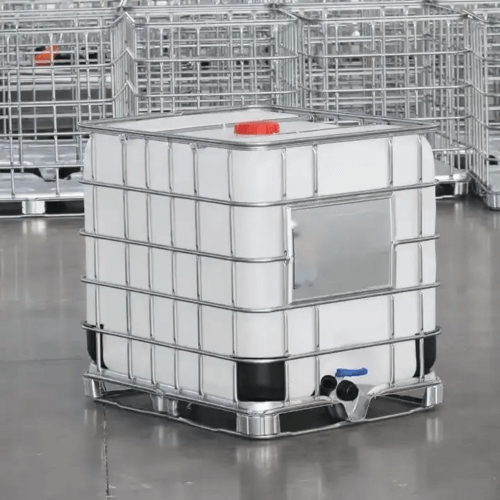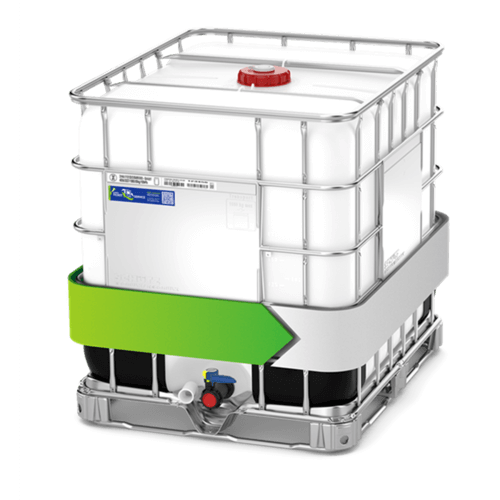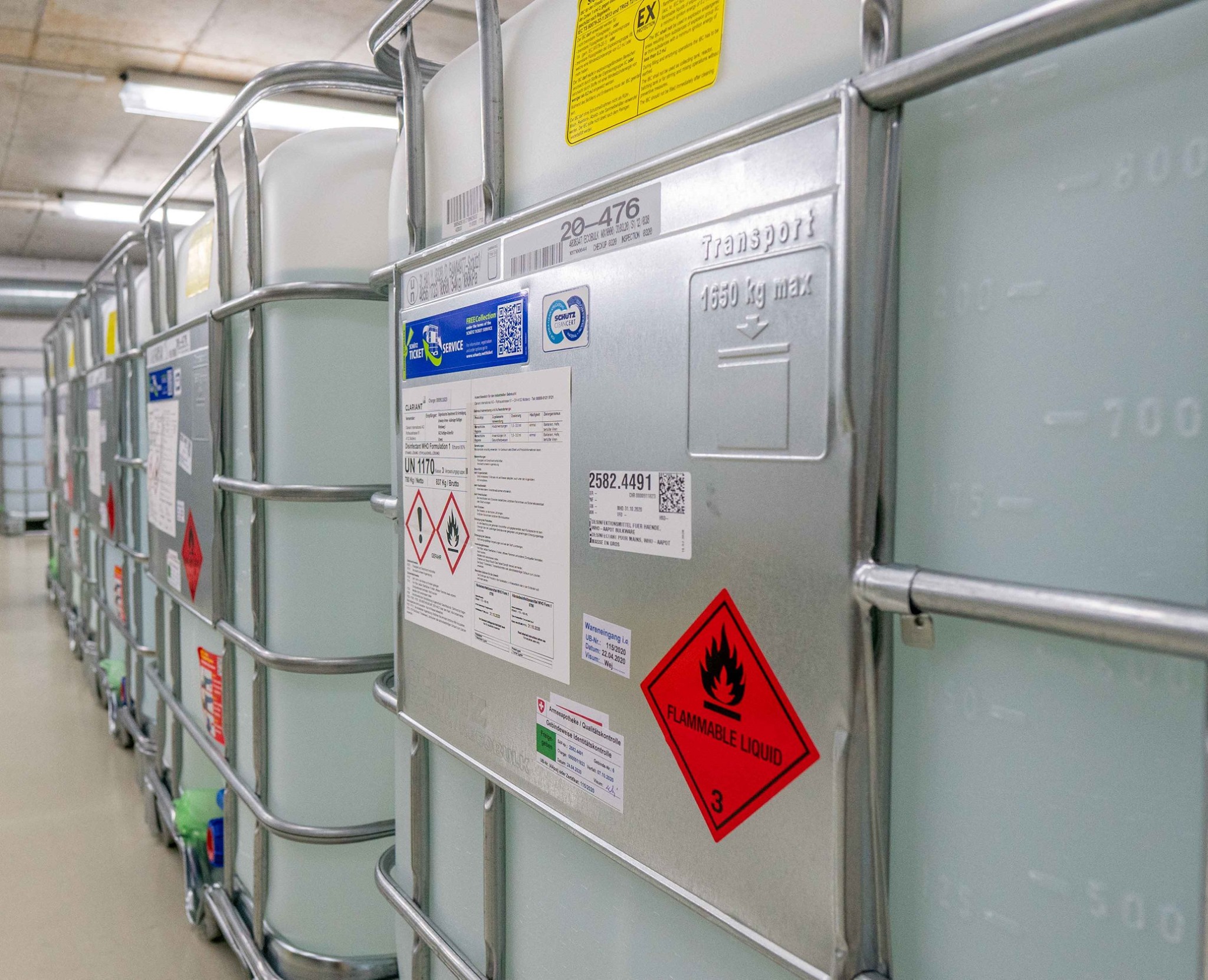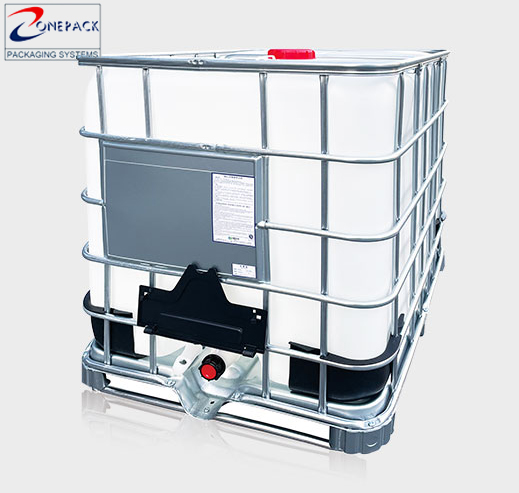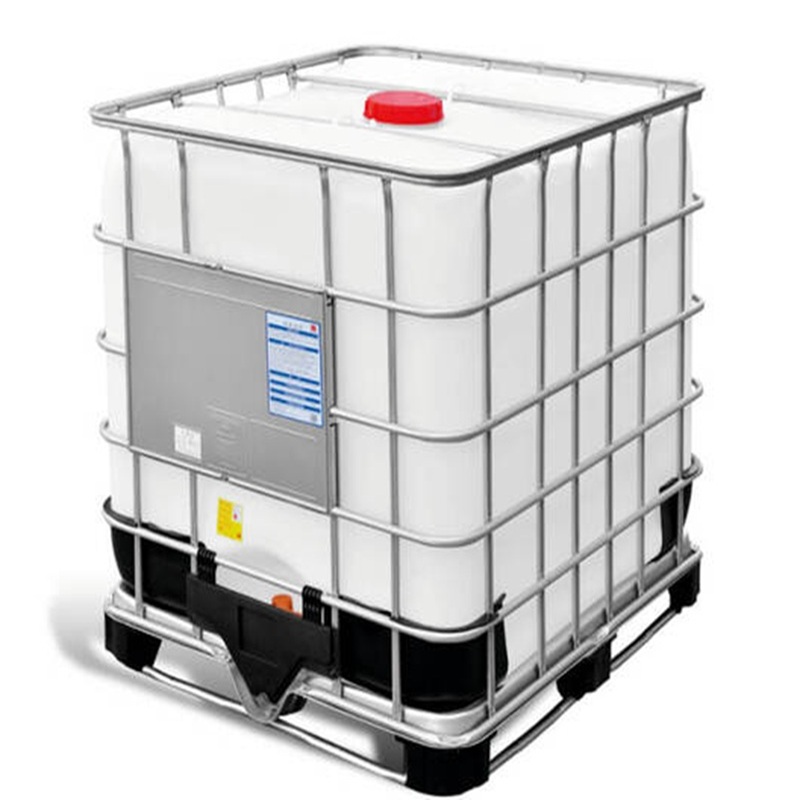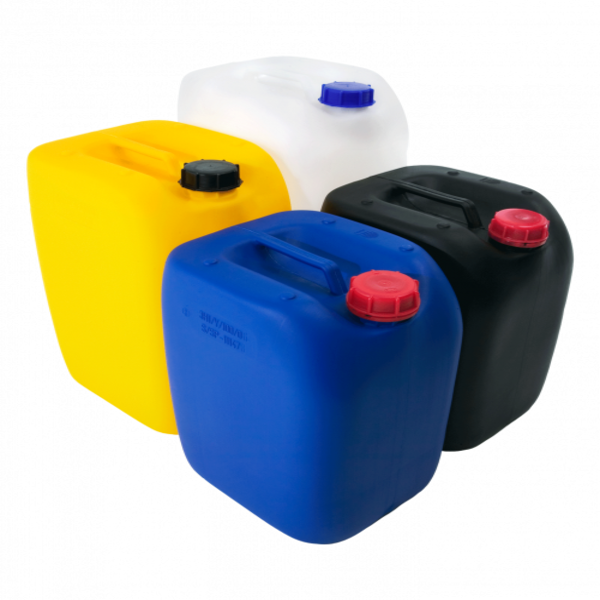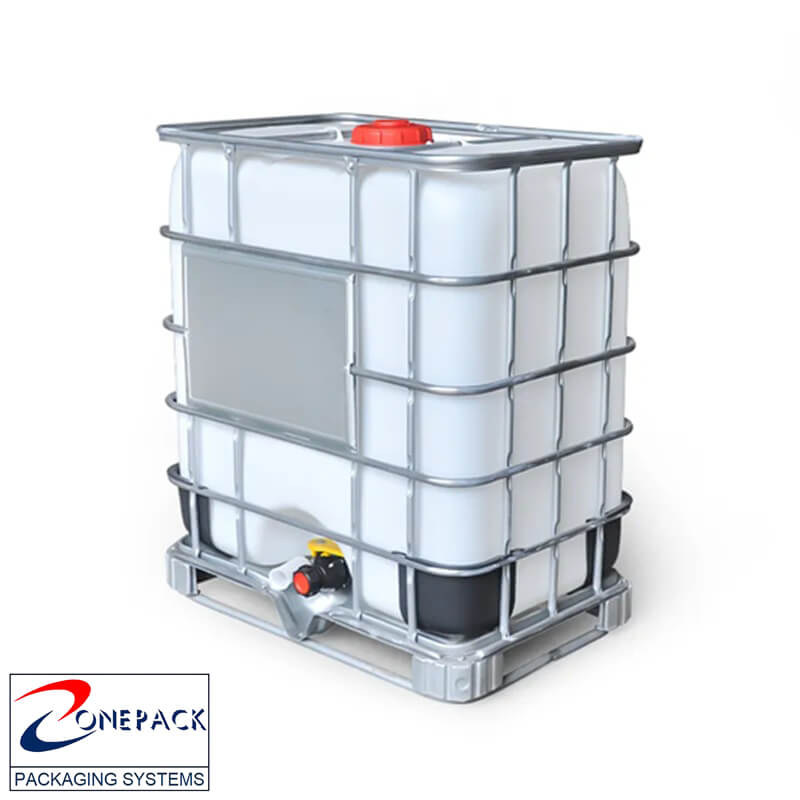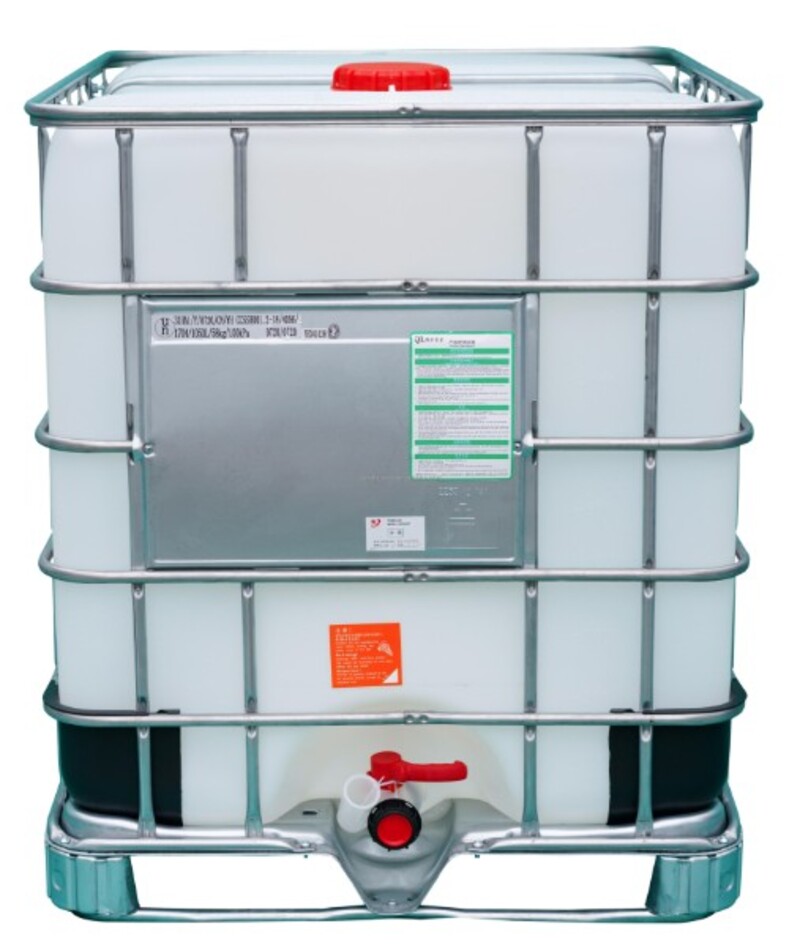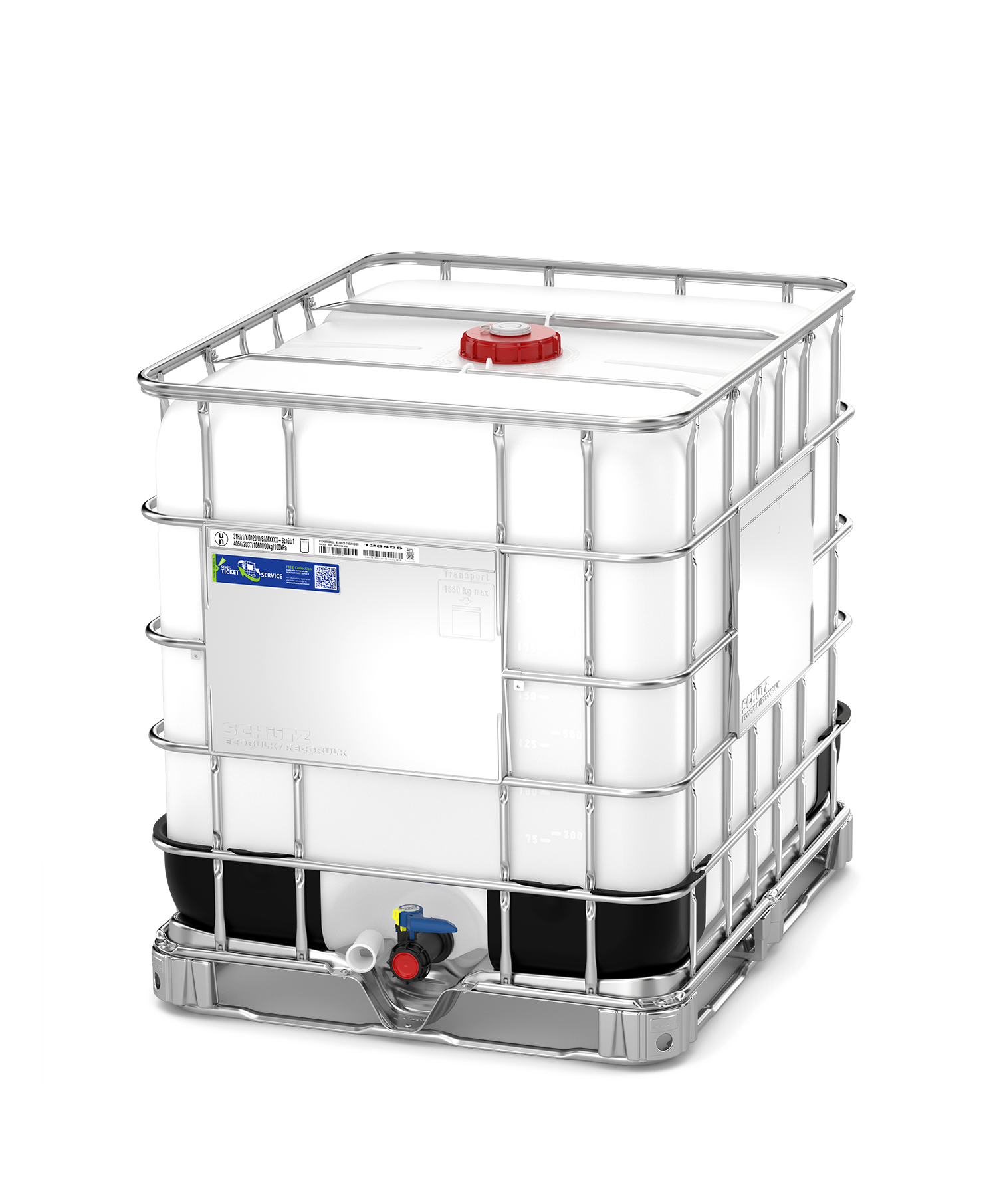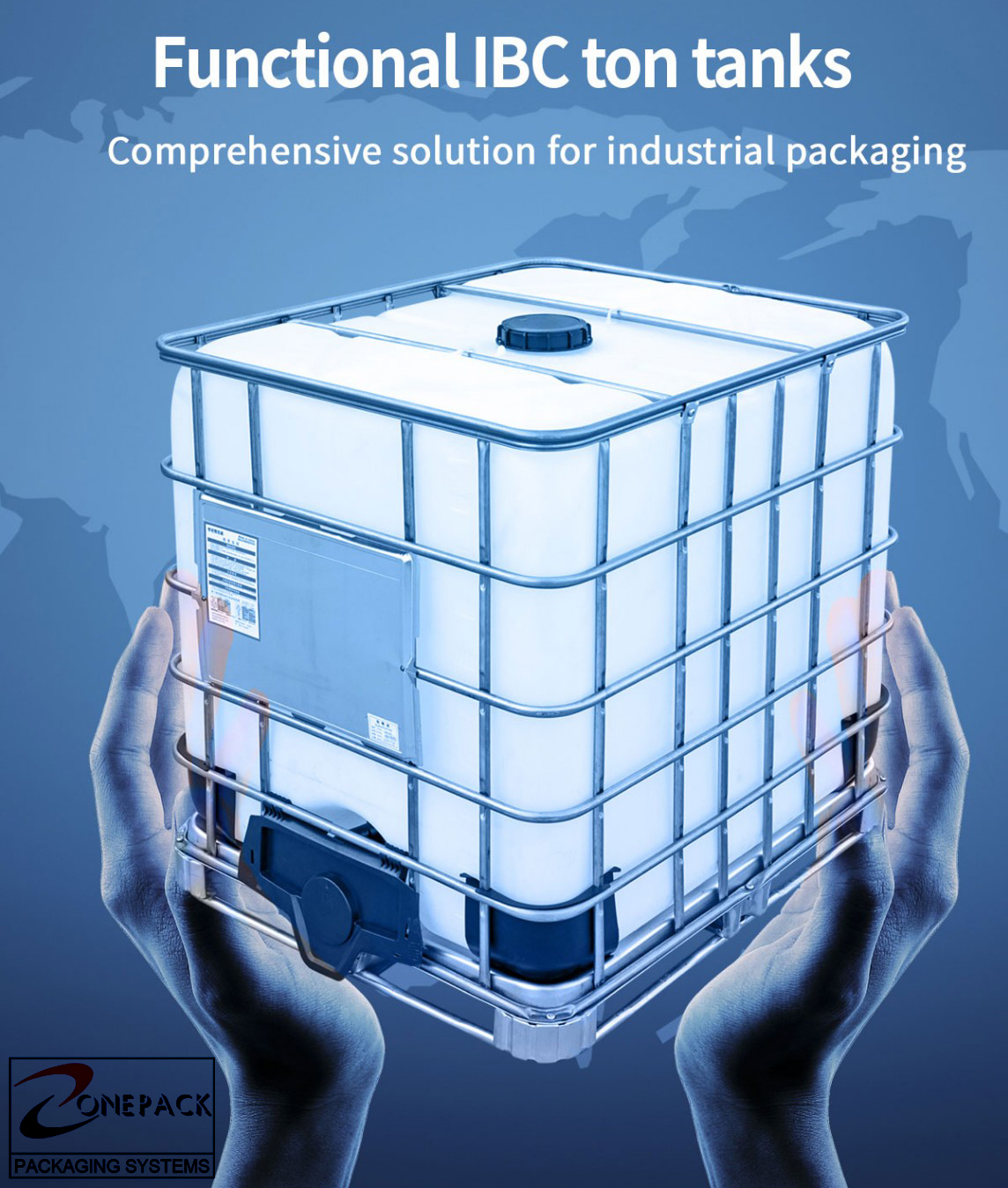In the world of industrial packaging and bulk liquid storage, Intermediate Bulk Containers (IBC tanks) play a crucial role. These versatile, durable, and cost-effective containers are widely used across industries such as chemical manufacturing, food processing, pharmaceuticals, and logistics. In this guide, Zonepack Vietnam provides an in-depth look at IBC tanks, their applications, benefits, and how to choose the right one for your business.
What Is an IBC Tank?
An IBC tank, or Intermediate Bulk Container, is a high-capacity storage unit designed for the safe transportation and storage of liquids, chemicals, and semi-solid materials. Most IBC tanks have a capacity of 1,000 liters (275 gallons), making them ideal for industrial use.
These tanks are constructed from High-Density Polyethylene (HDPE), a strong, lightweight, and chemical-resistant plastic, encased in a galvanized steel cage for enhanced protection. Their palletized base allows for easy handling with forklifts and stackability for efficient storage.
Key Features of IBC Tanks
-
IBC Tank Capacity & Dimensions: Standard 1,000-liter capacity with dimensions of approximately 1,000 x 1,200 x 1,152 mm.
-
Durability: Constructed from HDPE and reinforced steel, ensuring longevity and resistance to impact.
-
Versatility: Suitable for water, chemicals, food ingredients, lubricants, and more.
-
Cost-Effective: Reusable and recyclable, reducing packaging waste.
-
Easy Handling: Pallet-mounted design for convenient transport and stacking.
-
Customization: Available with different valve types, discharge systems, and protective covers.
How IBC Totes Work
IBC totes operate using a simple yet effective system that includes a sturdy tank, a discharge valve, and a protective cage. The bottom outlet valve allows for controlled dispensing of stored liquids, reducing waste and increasing efficiency. Accessories like pump systems, spill containment pallets, and insulation covers enhance their functionality.
Common Applications of IBC Tanks
IBC tanks are used across numerous industries due to their adaptability. Here are some of their most common applications:
1. Chemical & Solvent Storage
IBC tanks are designed to safely store hazardous and non-hazardous chemicals, including solvents, acids, and industrial cleaning agents. UN-certified IBC tanks ensure compliance with international safety standards.
2. Food & Beverage Industry
Food-grade IBC tanks are ideal for storing drinking water, syrups, edible oils, and other liquid food ingredients. These tanks meet FDA and EU food safety regulations, ensuring hygiene and quality preservation.
3. Pharmaceutical & Healthcare
Used for the storage of medical-grade liquids, alcohol-based sanitizers, and pharmaceutical ingredients, ensuring safe containment and easy transport.
4. Agriculture & Horticulture
IBC tanks support large-scale irrigation, rainwater harvesting, and storage of fertilizers and pesticides, helping farmers manage resources efficiently.
5. Construction & Automotive
In construction and automotive industries, IBC tanks store fuels, lubricants, and industrial coatings. Their stackability makes them space-efficient in warehouse and onsite operations.
6. Emergency Water Storage & Disaster Relief
IBC tanks play a crucial role in emergency preparedness, providing clean drinking water during natural disasters and humanitarian aid missions.
7. Waste Management & Recycling
Reconditioned IBC tanks are used for waste oil collection, wastewater treatment, and industrial recycling.
Benefits of Using IBC Containers
IBC tanks offer numerous advantages compared to other bulk storage solutions, including:
-
Space Efficiency: Stackable and easy to transport.
-
Safety: UN-certified options available for hazardous materials.
-
Durability: Constructed from high-quality HDPE or stainless steel.
-
Cost-Effectiveness: Reusable and long-lasting, reducing packaging costs.
-
Versatility: Suitable for a variety of liquids and semi-solids.
IBC vs. Drum Storage Solutions
When comparing IBC tanks to traditional drum storage, IBCs offer superior efficiency due to their larger capacity and ease of handling. A 1,000-liter IBC tank replaces up to five 200-liter drums, reducing handling time and optimizing storage space.
How to Maintain and Clean an IBC Tank
Proper maintenance extends the lifespan of IBC tanks and prevents cross-contamination. Here are essential cleaning steps:
-
Empty the tank completely after use.
-
Rinse with water or appropriate cleaning agents to remove residues.
-
For hazardous chemicals, professional decontamination is recommended.
-
Inspect for cracks or leaks before refilling.
-
Avoid reusing non-food-grade tanks for food storage.
-
Use high-pressure cleaning equipment for thorough sanitization.
Choosing the Right IBC Tank for Your Business
When selecting an IBC tank, consider the following factors:
-
Material Compatibility: Ensure the HDPE material is suitable for your liquid or semi-solid contents.
-
UN Certification: Required for hazardous material storage.
-
Food-Grade Compliance: If using for food, water, or beverages.
-
Fittings & Accessories: Choose from various valve and nozzle options for efficient dispensing.
-
Stackability & Space Efficiency: If storage space is limited, opt for stackable designs.
-
Temperature Resistance: Some liquids require UV-resistant covers or insulated containers.
Frequently Asked Questions (FAQs)
1. What is the lifespan of an IBC tank? IBC tanks can last 5 to 10 years depending on usage, material, and maintenance.
2. Can I store fuel in an IBC tank? While some IBC tanks can store diesel or non-corrosive fuels, flammable fuels like gasoline require specialized containers.
3. Are IBC tanks food-grade? Yes, food-grade IBC tanks meet FDA and EU safety standards for storing consumables.
4. How do I transport an IBC tank safely? Use forklifts or pallet jacks, ensure proper securing, and follow transportation regulations.
5. Can I reuse an IBC tank? Yes, but ensure proper cleaning and compliance with material compatibility before reuse.
Why Choose Zonepack Vietnam for IBC Tanks?
Zonepack Vietnam is a leading supplier of high-quality IBC tanks, ensuring compliance with global safety standards and providing customized solutions for various industries. With a focus on sustainability, durability, and affordability, we offer:
-
New and reconditioned IBC tanks.
-
Custom fittings and accessories to suit your operational needs.
-
Expert advice on bulk liquid storage solutions.
-
Reliable shipping and logistics support.
-
Eco-friendly recycling programs for used IBC tanks.
-
Flexible supply options for businesses of all sizes.
Conclusion
At Zonepack Vietnam, we provide premium-quality IBC tanks tailored to your needs. Contact us today to learn more about our custom solutions for your industry!
